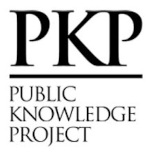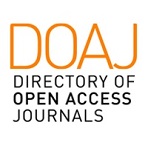Ka mua, ka muri: navegando por el futuro de la educación en diseño basándose en marcos indígenas
DOI:
https://doi.org/10.29147/dat.v6i2.404Palabras clave:
Diseño, Educación, Mātauranga Māori, Metáfora, Navegación polinesiaResumen
A medida que los profesionales del diseño y los educadores intentan responder a un mundo cambiante, en el idioma maorí, Te Ao Hurihuri, ¿cómo podríamos gestionar esos cambios? Un precedente indígena se basa en el pasado para ayudar al futuro: ka mua ka muri, “viajar hacia atrás en el futuro”, el pasado se extiende detrás de nosotros, a medida que avanzamos hacia lo desconocido. Los académicos indígenas se inspiran en los puntos de vista tradicionales existentes y los reformulan como metodologías, utilizando metáforas para dar forma a las soluciones. ¿Qué tiene el poder de la metáfora, en particular las formas de ver indígenas, que podría ofrecer soluciones? En este artículo, describo exploraciones para extraer principios rectores del conocimiento de navegación indígena. El objetivo: construir una estructura aplicable para la enseñanza del diseño terciario a partir de dos modelos metafóricos, basados en las visiones del mundo samoano y hawaiano, y conceptos maoríes relacionados. El resultado fue un marco Navigator, creado para su uso potencial en un aula colaborativa con estilo de estudio.
Descargas
Citas
Auckland University of Technology. (n.d.). Our Oceanian Leadership network. https://www.aut.ac.nz/about/pacific/our-initiatives/Our-OceanianLeadership-Network
Berryman, M., Glynn, T., Walker, R., Reweti, M., O'Brien, K., Boasa-Dean, T., Glynn, V., Langdon, Y., & Weiss, S. (2002). SES sites of effective special education practice for Māori 2001 [Draft report to the SES Board and Executive Team]. Specialist Education Services.
Bevan-Brown, J. (2002). Culturally appropriate, effective provision for Māori learners with special needs: He waka tino whakarawea [Doctoral thesis, Massey University]. Massey Research Online. http://hdl.handle.net/10179/1935
Crowe, A. (2018). Pathway of the birds: The voyaging achievements of Māori and their Polynesian ancestors. University of Hawaii Press.
Durie, M. (1998). Whaiora: Māori health development (2nd ed.). Oxford University Press. Education Review Office. (2016). Wellbeing for success: A resource for schools. https://www.ero.govt.nz/assets/Uploads/Wellbeing-resource-WEB.pdf
Finney, B. (2003). Sailing in the wake of the ancestors: Reviving Polynesian voyaging. Bishop Museum Press. Grayzel, J. (2019). Polynesian civilization and the future colonization of space. Comparative Civilizations Review, 80(80), Article 3. https://scholarsarchive.byu.edu/ccr/vol80/iss80/3
Hall, A., Morice, M. P., & Wilson, C. (2012). Waka Oranga: The development of an Indigenous professional organisation within a psychotherapeutic discourse in Aotearoa New Zealand. Psychotherapy and Politics International 10(1), 7–16. https://doi.org/10.1002/ppi.1255
Henry, E. (2021, February 28). Ella Henry: Creating a new Aotearoa [Interview]. E-tangata. https://e-tangata.co.nz/korero/ella-henry-creating-a-new-aotearoa/Hohl, M. (2015). Living in cybernetics: Polynesian voyaging and ecological literacy as models for design education. Kybernetes, 44(8/9), 1262 1273. https://doi.org/10.1108/K-11-2014-0236
Mātāmua, R. (2019, July 4). The science of Matariki [Interview]. Our changing world. Radio New Zealand. https://www.rnz.co.nz/national/programmes/ourchangingworld/audio/2018702275/the-science-of-matariki
Niall, T. (2021, March 5). America's Cup: How great Polynesian voyagers can inspire Māori and Pasifika kids. Stuff. https://www.stuff.co.nz/pou-tiaki/124430061/americas-cup-how-great-polynesian-voyagers-can-inspire-mori-and-pasifika-kids
Pohatu, T. W. (2013). Āta: Growing respectful relationships. Ata: Journal of Psychotherapy Aotearoa New Zealand, 17(1), 13-26. https://doi.org/10.9791/ajpanz.2013.02
Rangiwai, B., Simati-Kumar, B., & Mataroa, R. (2020). The He Waka Hiringa Map 2020-2021: Using He Raranga Tangata to support the implementation of the He Waka Hiringa Map in the Master of Applied Indigenous Knowledge programme at Te Wānanga o Aotearoa in Māngere. Te Kaharoa, 15(1). https://ojs.aut.ac.nz/te-kaharoa/index.php/tekaharoa/article/view/294
Reilly, M. P. J. (2009). A stranger to the islands: Voice, place and the self in Indigenous Studies [Inaugural Professorial Address, Otago University]. http://hdl.handle.net/10523/5183
Royal, T. A. C. (2007). Mātauranga Māori and museum practice: A discussion [Report to National Services Te Paerangi]. Museum of New Zealand Te Papa Tongarewa.
Somerville, A. T. P. (2009). Once were Pacific: Māori connections to Oceania. University of Minnesota Press.
Speidel, G. E., & Inn, K. (1994). The ocean is my classroom. The Kamehameha Journal of Education, 5(2), 11-23.
Sullivan, R. (2015). Mana moana: Wayfinding and five Indigenous poets [Doctoral thesis, University of Auckland]. ResearchSpace. http://hdl.handle.net/2292/25497Webb-Liddall, A. (2019, August 11). The man hijacking the Cook commemorations to tell the story of Polynesian exploration. The Spinoff. https://thespinoff.co.nz/atea/11-08-2019/the-man-hijacking-the-cook-commemorations-to-tell-the-story-of-polynesian-exploration
Wendt Samu, T. (2010). Pacific education: An Oceanic perspective. Mai Review, Article 1. http://www.review.mai.ac.nz/mrindex/MR/article/download/311/311-2283-1-PB.pdf
Zaki, A. (2018, April 10). “Legendary” map of Pacific by James Cook's Tahitian navigator Tupaia finally unlocked. Stuff. https://www.stuff.co.nz/national/101871481/legendary-map-of-pacific-by-james-cooks-tahitian-navigator-tupaia-finally-unlocke.


























